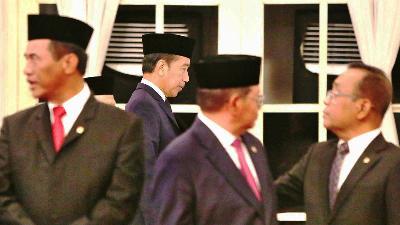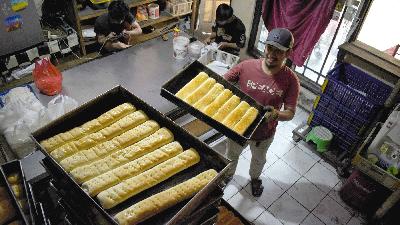The Danger of Police Generals as Anti-Corruption Commissioners
Several police generals are preparing to participate in the selection of the KPK leadership. The KPK must not become a nest of ‘crocodiles’.
Tempo
July 22, 2024

AS long as the Corruption Eradication Commission (KPK) is still under the control of the president, the selection of the institution’s leadership will be nothing more than a joke. It will be difficult to hope for anyone chosen as a KPK commissioner to be independent and to eradicate corruption without fear or favor.
For corrupt politicians and officials, an independent KPK is a major foe. Therefore, using various methods, they have tried to weaken the KPK. Since the revision to the KPK Law, the president and politicians in the House of Representatives (DPR) have chosen leaders that they can control, like the KPK in the Firli Bahuri era.
The signs are visible from the selection of potential KPK leaders for 2024-2029. Of the 525 people who registered as prospective leaders as of July 15, four are active police generals. They are Comr. Gen. Setyo Budiyanto, Comr. Gen. Ridwan Zulkarnain Panca Putra Simanjuntak, Insp. Gen. Djoko Poerwanto, and Insp. Gen. Didik Agung Widjanarko. Apart from Djoko, they have all been assigned to the KPK in the past.
From the point of view of the government and the DPR, controlling the KPK leadership using police officers—who are also still under the control of the president—is easier than trying to control a leadership comprised of independent individuals. Meanwhile, from the point of view of the police, the nomination of these four generals is rightly seen as a way of planting their men in the KPK leadership.
The police have already installed their people at the level of investigator, director and deputy. The motive is to control every policy within the KPK, such as deciding which cases to investigate. The Firli Bahuri era provided a concrete example of how corruption cases can be suppressed if they are linked to people in power.
The bribery case involving the Indonesian Democratic Party of Struggle (PDI-P) politician Harun Masiku, for example, saw no progress for a long time because of the possibility that it would drag in PDI-P Secretary-General Hasto Kristiyanto. Subsequently, after the PDI-P ended its alliance with President Joko Widodo in the 2024 general election, the Harun Masiku case rose from the grave. The KPK investigated the case at a time when Hasto was harshly criticizing the presidential election during the Jokowi administration.
Given this kind of maneuver by the KPK, it is understandable that people are suspicious that the generals who have registered as prospective KPK leaders were planted there to safeguard the future interests of those in power. Moreover, it is not going too far to also suspect that they have been placed there to protect the interests of the police by not investigating cases within the law enforcement agency, as well as to control political opponents using the threat of prosecution for corruption.
On top of this, the four generals have the appearance of job seekers because currently they do not have any positions within the police. Some people might not be aware that there are many non-job officers in the police force because the retirement age is 58. In 2018, according to the National Police Commission, there were 400 non-job officers. It is believed that this total will rise if the National Police Law is passed, because it contains a provision to, again, increase the police retirement age to 60 years.
With this kind of disarray, it is difficult to hope that the KPK will ever regain its former dignity. This selection of the leadership could only lead to the appearance of new ‘crocodiles’ within the KPK.


